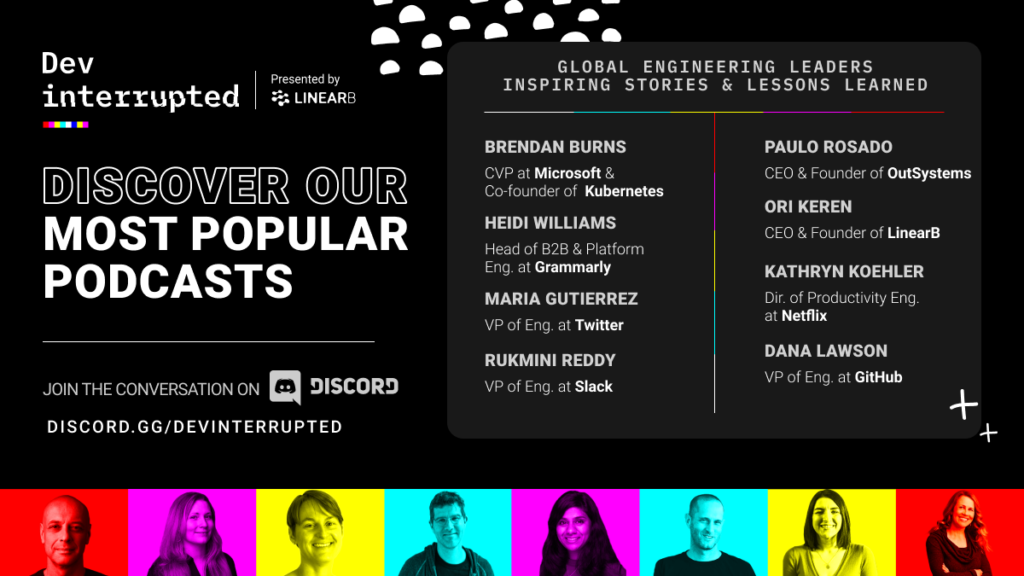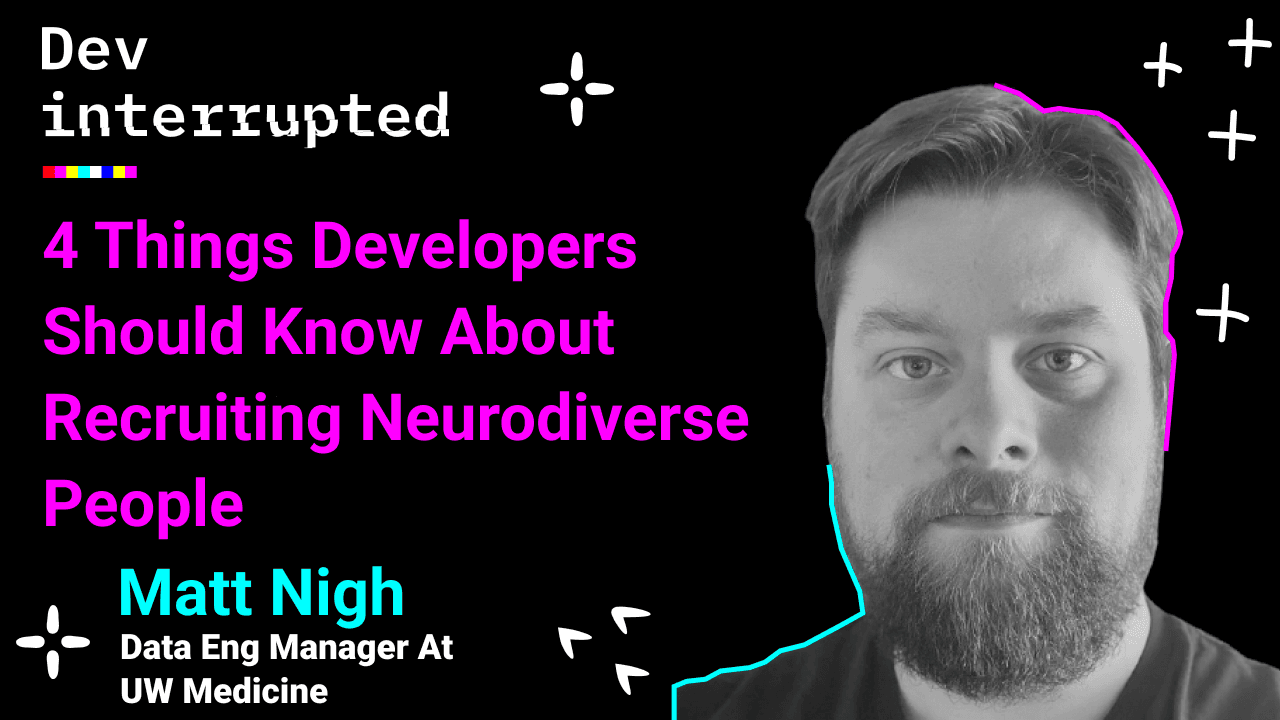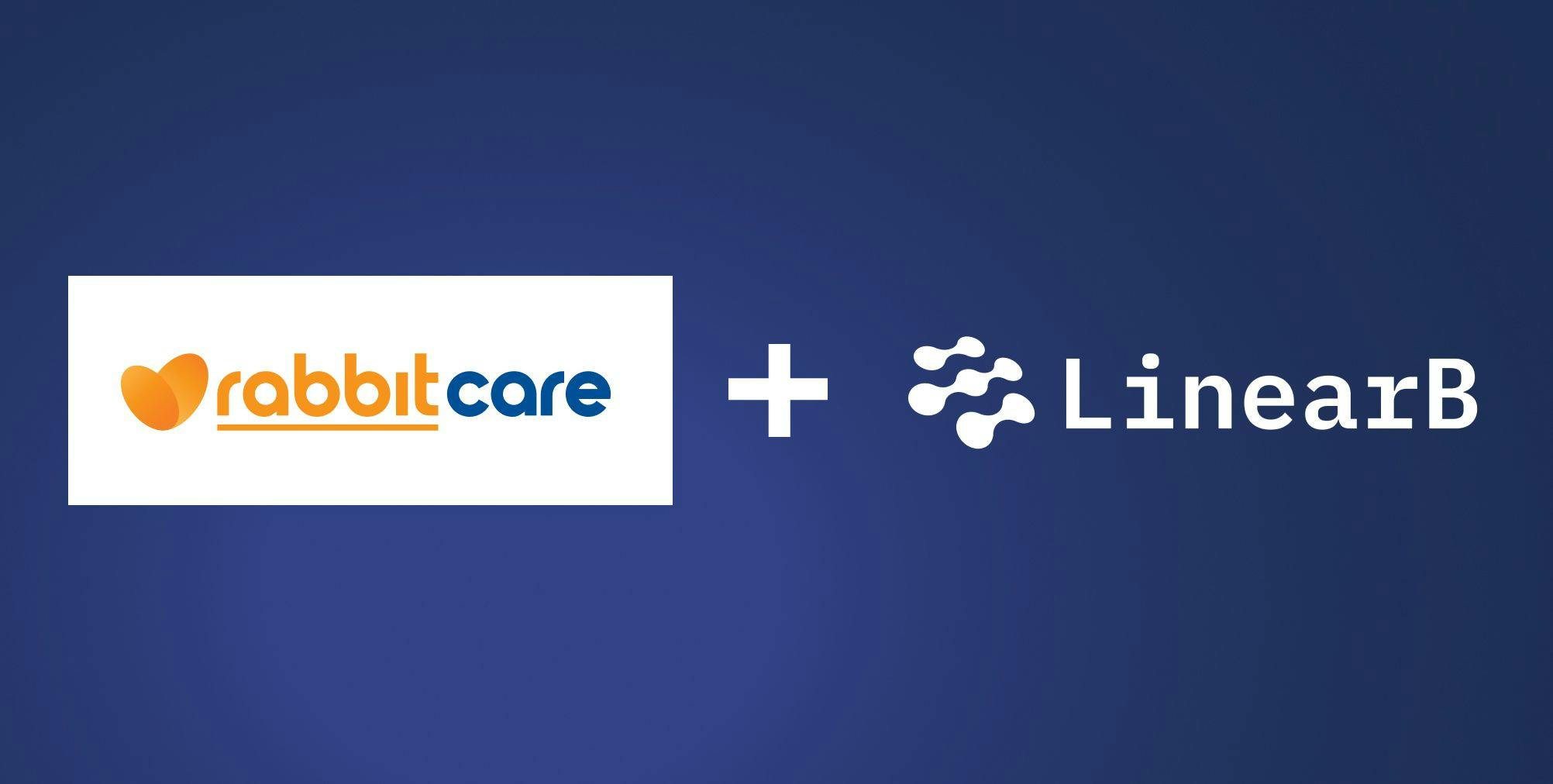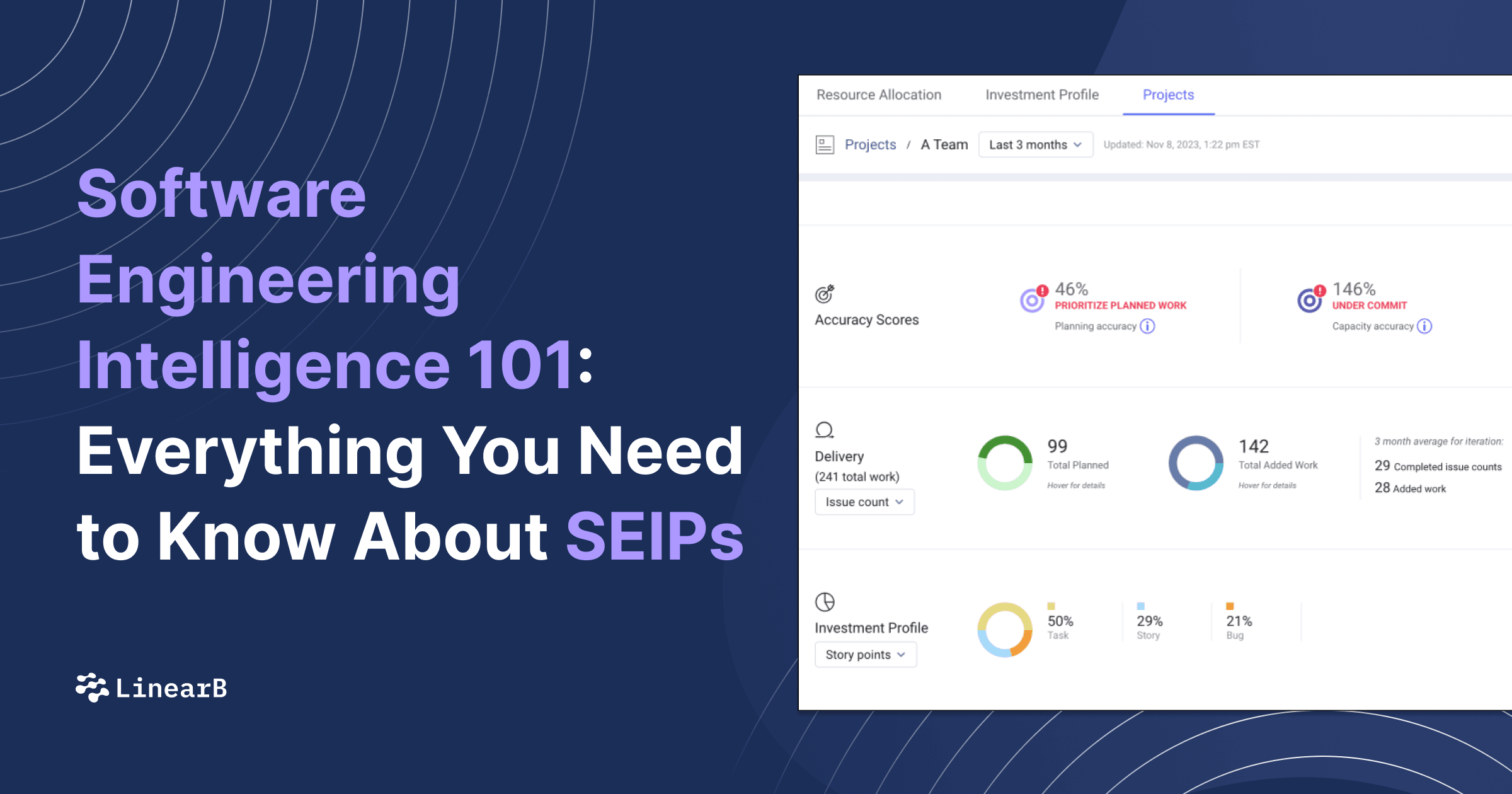4 Things Developers Should Know About Recruiting Neurodiverse People
Hiring neurodiverse developers can be challenging, particularly for smaller companies that are less experienced at hiring. This isn’t because you need an entirely new process or that neurodiverse people are inherently trickier to interview. It’s that small flaws in your hiring process get exacerbated. Obstacles that cause neurotypical people to stumble, become outright blockers to a neurodiverse person.
So we asked Matt Nigh, data engineering manager at UW Medicine, to give his tips on how to make sure your hiring process suits everybody.
“I think there are companies that other organizations could mimic,” Matt explained. “I would look at Google as one of probably the best that I’ve experienced.”
-On the Dev Interrupted Podcast at 25:50
1. Interview processes should be conversational
If you use a lot of formal language, jargon and needlessly complicated words, you’ll make it much harder for your interviewee to understand what you want them to do. It also makes the interview artificial and cold, which can lead to unnecessary stress and anxiety in your interviewee. This is true for everybody, but for a neurodiverse developer, it can be much more potent.
“The most inclusive interview process I ever experienced was at Google,” Matt said. “And the reason I felt they had such an inclusive process is that it was wildly conversational. They were incredibly good at explaining what they were asking and what they were looking for. And to me, it was an incredibly friendly process.”
-On the Dev Interrupted Podcast at 24:10
2. Neurodiverse developers prefer straightforward and clear instructions
When giving instructions, particularly in practical tests, it’s important to make sure that you’re being clear and straightforward. Leaving ambiguity can cause problems, especially for neurodiverse developers. That ambiguity can distract away from the actual task at hand. The clearer your instructions, the better you’ll test a developer’s actual skills.
“I would say the reason I failed the system design interview was (and this is an example of what autism will do during an interview) it was the first system design interview I ever had. And I spent half the time trying to understand the language that the individual was using, rather than solving the problem, trying to make sure we’re just on the same page with what we were saying,” Matt said.
-On the Dev Interrupted Podcast at 24:40
3. Neurodiverse developers need diverse recruiters, and stick around for longer once hired
Everyone has their own biases. While we should all strive to overcome those, it’s not always possible. The best way to avoid those problems is to make sure your interview team is diverse. Some coping mechanisms and strategies can seem strange to a neurotypical recruiter at first.
For example, someone with ADHD might ask you to repeat points or be typing as you speak. While it could initially look like they’re answering emails or not paying attention to you, it’s more likely that they’re taking notes to make sure they follow your instructions properly. The more diverse your recruiters, the fewer false assumptions you’ll make.
“Most recruiters are used to looking at neurotypical applicants, and they essentially have mental flags that come up with certain things, certain questions or anything like that,” Matt said. “Companies should ask: Do I have inclusive recruiters? So say, for example, at Google, they had incredibly inclusive recruiters. I was recruited by a deaf individual, for example. So this person very clearly understands me and anything that was going on.”
-On the Dev Interrupted Podcast at 25:13
4. Neurodiverse developers could be more productive, and worth changing your processes
A program at Hewlett Packard Enterprise hired over 30 neurodiverse people in software testing roles at Australia’s Department of Human Services. The initial results from the program seem to suggest that those testing teams are 30% more productive than others, according to an article in the Harvard Business Review, called neurodiversity as a competitive advantage.
It would seem that, while a neurodiverse person might struggle in some areas—like the social anxiety brought on by an interview—they could exceed in others, such as pattern recognition.
Watch the full interview
If you’d like to hear more from Matt on neurodiversity in software development, you can watch the full podcast on our channel.
Starved for top-level software engineering content? Need some good tips on how to manage your team? This article is inspired by Dev Interrupted - the go-to podcast for engineering leaders.
Dev Interrupted features expert guests from around the world to explore strategy and day-to-day topics ranging from dev team metrics to accelerating delivery. With new guests every week from Google to small startups, the Dev Interrupted Podcast is a fresh look at the world of software engineering and engineering management.
Listen and subscribe on your streaming service of choice today.




